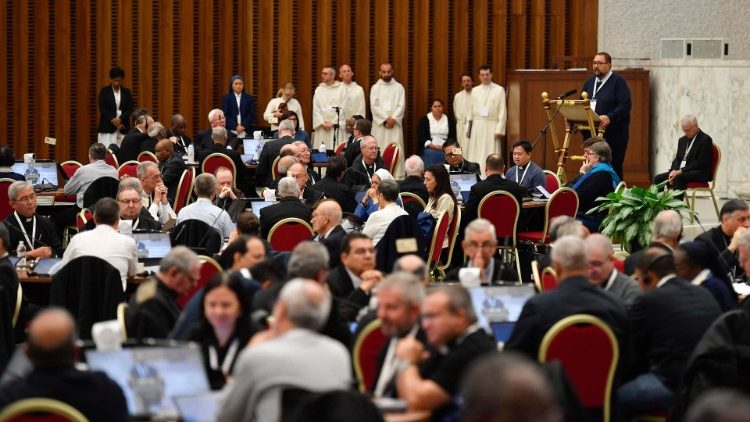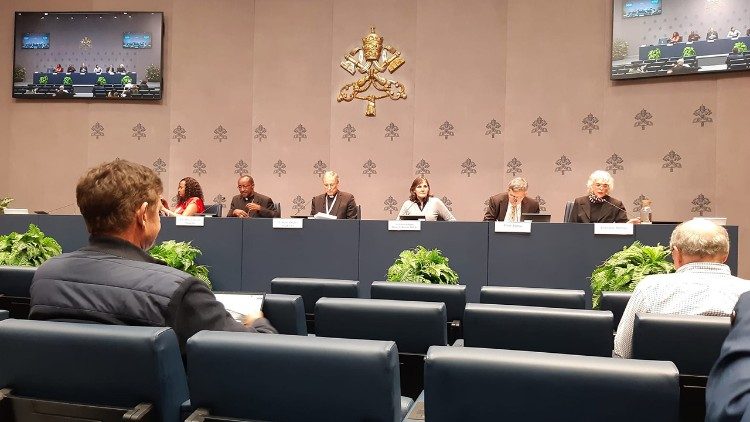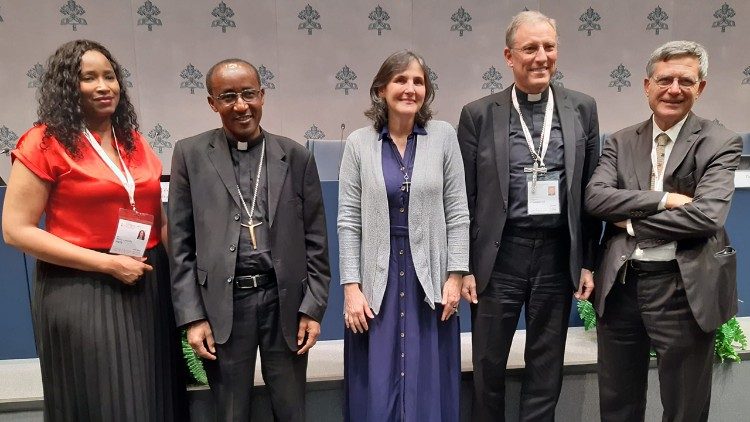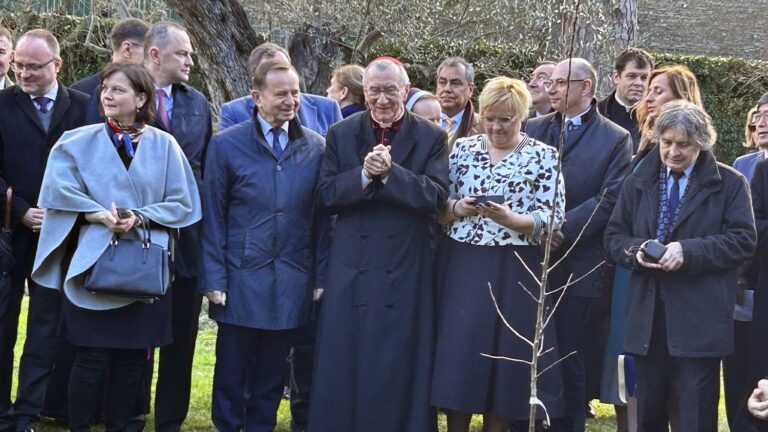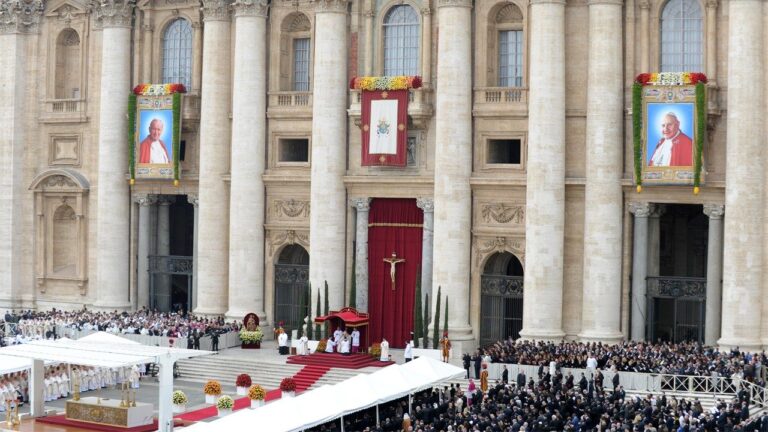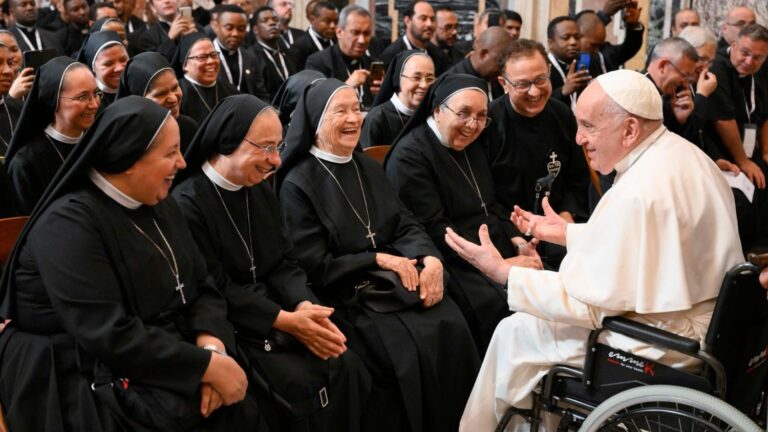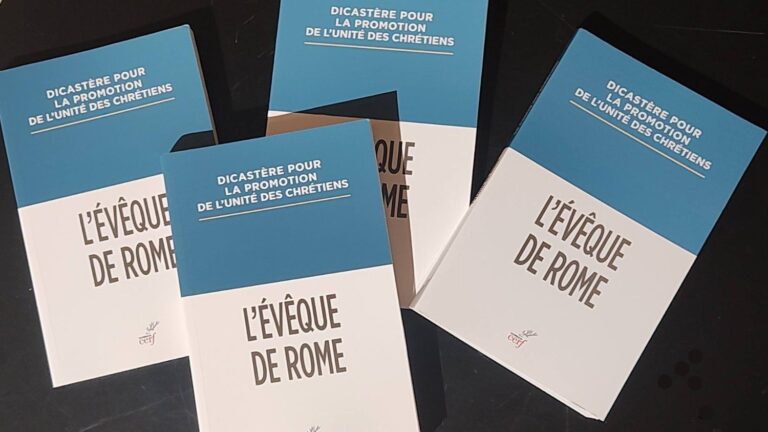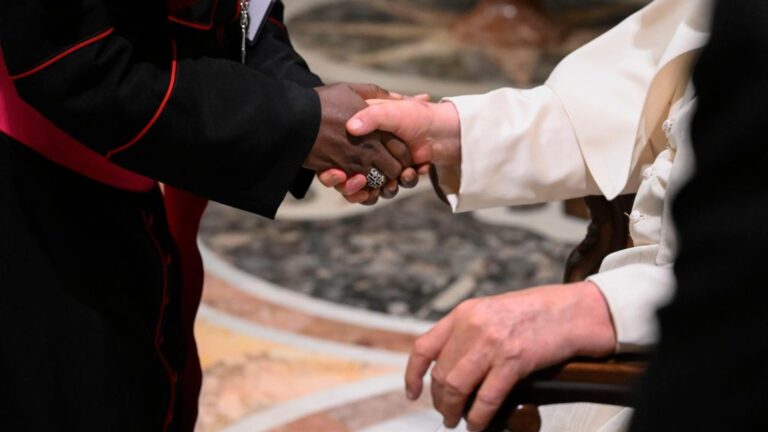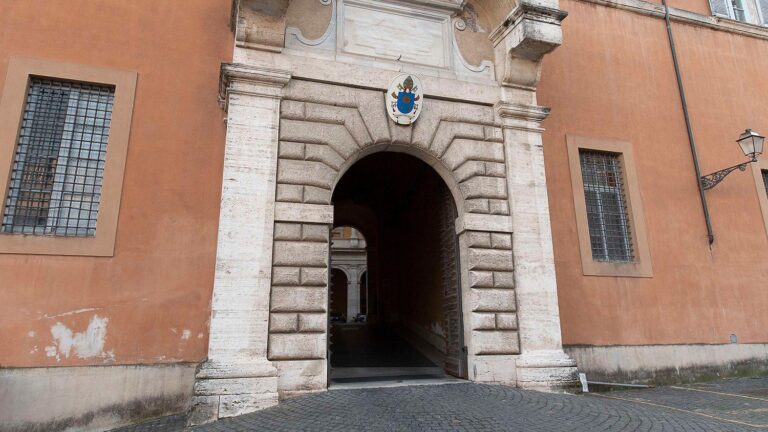Synod Briefing – Day 10: Synod focuses on decision-making
Over the weekend, the General Assembly of the Synod on Synodality focuses on decision-making processes, emphasizing the need for transparency, accountability and evaluation.
By Christopher Wells
The work at the Synod in recent days has focused on the Journey section of the Work instrumentwith a particular emphasis on how Church leaders make and implement decisions.
At Monday’s daily press conference, Dr. Sheila Pires, secretary of the Synod Information Commission, stressed the importance of hearing the experiences of the Church in different contexts, highlighting the problems that sometimes arise for find harmony between Christian traditions and local practices. and laws.
Ideas and suggestions, she said, come from people already dealing with various existing realities.
Dr. Pires highlighted some of the most prominent themes of recent days, including the importance of children in Catholic schools and the role of schools in formation and evangelization.
Another important topic was the issue of abuse, particularly abuse suffered by nuns, with several speakers emphasizing the need to promote policies and procedures to address this issue.
Once again, the role of women in the Church in general was an important topic of discussion, including the need for women to play a greater role in seminary training.
For his part, the president of the Information Commission, Dr. Paolo Ruffini, highlighted the debate on the need to involve women, and lay people in general, in decision-making processes within the Church .
He also addressed issues related to accountability, including what it means in a church context and how to achieve it.
Among the other subjects raised in the numerous interventions of recent days, let us cite the need to promote the already existing synodal realities, drawing inspiration from the Churches which already practice synodality in various decrees; and the need to resist any form of clericalism, through proximity, dynamic relationships and the involvement of people from across the Church in decision-making.
Sr. Gloria Liliana Franco Echeverri, ODN
Among the guests at Monday’s press conference was Sister Gloria Liliana Franco Echeverri, ODN, president of the Latin American Confederation of Religious Men and Women (CLAR), and witness to the synodal process.
In her opening speech, Sister Liliana declared that the Assembly’s reflections “place before us the action of Jesus”, the evangelical values and style which must permeate synodality.
She also emphasized the need for meaningful training based on engaged witness and undertaken with others in a way that “enables us to adopt the style of Jesus.”
Sr. Liliana also spoke about discernment, which offers the possibility of determining what the Holy Spirit asks of the Church. Discernment, both personal and communal, she said, helps us seek together, in our diversity, certainty regarding journey and mission. To this end, she emphasized the importance of participatory structures throughout the Church.
Finally, Sr. Liliana took note of the discussions on Monday morning, which largely revolved around the concepts of transparency and culture, not so much as tools, but as a culture “which must exist in the Church” and which must permeate the methods and identity. of the Church.
Mgr Edouard Sinayobe
Mgr Edouard Sinayobye, Bishop of Cyangugu in Rwanda, then took the floor to talk about the situation in his country following the horrors of the genocide which swept his country thirty years ago.
He began by saying that the work of the Synod is comparable to what the apostles experienced and experienced in the Upper Room at Pentecost, where they received the gift of the Holy Spirit.
Addressing the current situation in Rwanda, he highlighted the reconciliation process aimed at unity, which is still continuing three decades after the genocide. The Church, he said, works on a pastoral level to heal people, accompanying both victims and perpetrators.
The Synod, he said, “is something we are experiencing as an opportunity to strengthen unity and reconciliation,” a lived teaching that helps Rwandans understand that the path forward must be based on a fraternal and spiritual lifestyle.
He said that the experience of synodality is an opportunity to deepen the different approaches aimed at creating unity by helping to live in a spirit of communion.
Bishop Sinayobye also stressed the importance of participation and listening, as well as the need for missionary evangelization.
Mgr Zbignevs Stankevics
Finally, the Archbishop of Riga, Zbignevs Sankevics, told journalists that the Synod responds “to a deep desire in my heart to involve every baptized person in the Church”, to make them evangelizing missionaries in order to “expand the kingdom of God throughout the world. world.”
He recalls telling journalists when he was first named bishop his “strategic objectives” of fostering spiritual renaissance, involving all Catholics, all Christians, all men and women of good faith. will. And he expressed his “deep conviction” that the Synod must aim to “liberate the charisms of every baptized person”.
According to the Latvian archbishop, this objective is linked to notions of co-responsibility and decentralization within the Church – but as an expression of ecclesial and spiritual communion rather than in a secular or democratic way.
Bishop Sankevics highlighted paragraph 58 of Work instrumentwhich refers to Gaudium et spes and focuses on truly discerning God’s presence and purposes. The final goal of the synod, he said, is mission, that is to say making a Church “on the move” ever more missionary.
He concluded by saying that the Synod must discern by examining different ecclesial efforts around the world, determining where the good fruit is found in local communities and learning from them.
On Monday afternoon, the working groups will prepare their reports, while on Tuesday morning the General Assembly will begin work on the third module, “Locations”.


